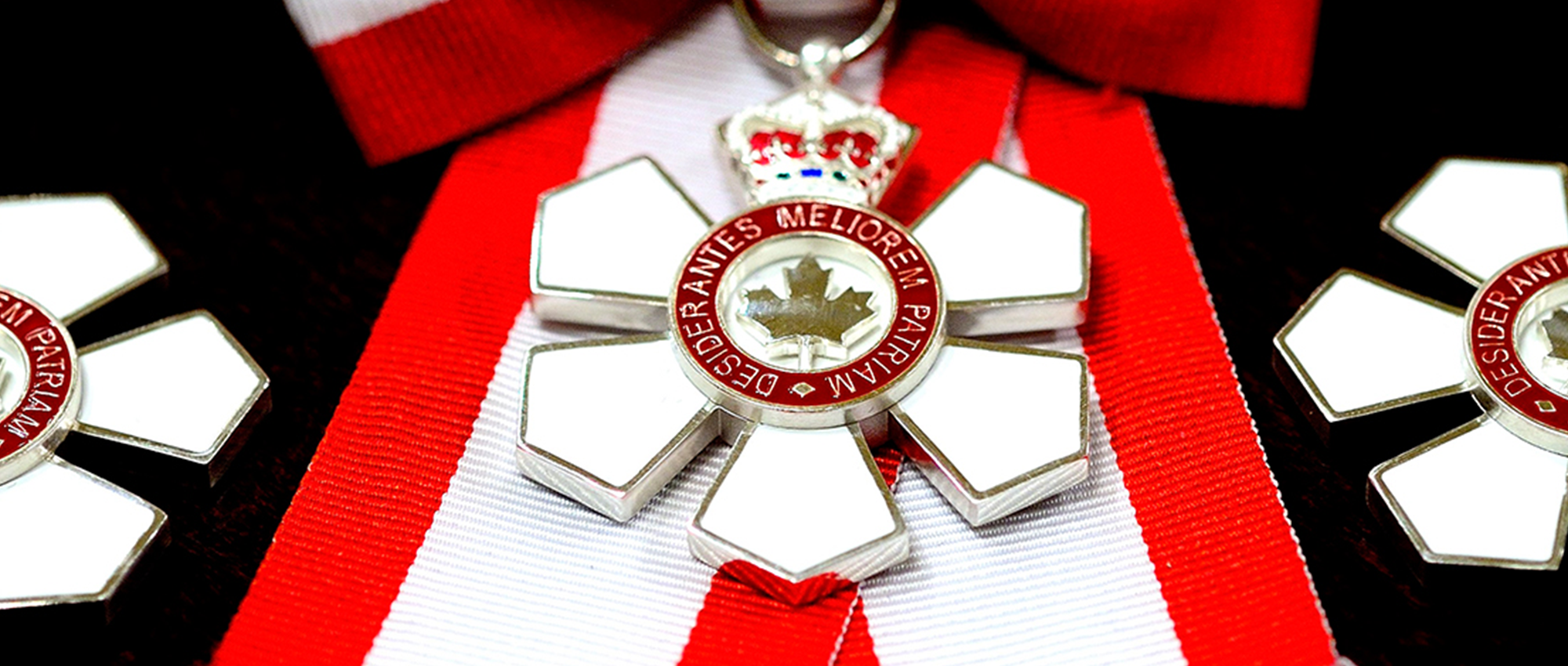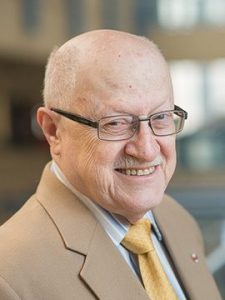

Photo: Insignia of the Order courtesy of the Office of the Governor General of Canada.
Dr. Peter Suedfeld was named Officer of the Order of Canada in recognition of his remarkable achievements and contributions to Canada.
On June 27, 2019, Her Excellency the Right Honourable Julie Payette, Governor General of Canada, announced the new appointments to the Order of Canada, one of our country’s highest civilian honours. The Order of Canada recognizes outstanding achievement, dedication to the community and service to the nation. More


Dr. Peter Suedfeld
Considered Canada’s most versatile psychologist, Dr. Suedfeld’s diverse body of research covers several areas including psychological resilience and positive psychology, space and polar psychology, and Restricted Environmental Stimulation Therapy (REST); a field he has pioneered. Dr. Suedfeld has conducted extensive research on the long-term adaptation of Holocaust survivors. He has also studied the decision-making of political and military leaders in times of crisis, such as entering war. This work has looked at leaders from several centuries and countries.
A common theme throughout his research is the resiliency of human beings and how people adapt to and cope with novelty, challenge, stress, and danger—much of which is summarized in his seminal paper Homo Invictus: The Indomitable Species.
Dr. Suedfeld is currently leading an Antarctic study where weekly oral diaries are administered at the Condordia, Halley VI (now closed), and Mawson research stations.
Suedfeld is also co-investigator of the At Home in Space study, led by UBC sociologist Dr. Phyllis Johnson. At Home in Space is Canada’s first psychosocial experiment on board the International Space Station. Their goal is to learn how astronauts can not only survive the high-pressure and isolating experience of long-term space flight, but thrive in it.
He has worked with the National Aeronautics and Space Administration (NASA) and the Canadian Space Agency (CSA) to help determine optimum capsule design for habitability and psychological health. Much of his research on extreme environments has been funded by the CSA.
On receiving the award Dr. Suedfeld says, “My original goal in psychology was to run laboratory experiments expanding basic knowledge about human beings. That was my excitement and enthusiasm for years, during which my studies dealt primarily with people’s reactions to novelty, uncertainty, and various sources of stress. I was a stereotypical inhabitant of the ivory tower. Applications of my findings to specific problem situations didn’t interest me. But as I kept following my curiosity-driven path, it gradually guided me to look outside the lab at the most extreme human situations. I felt the need to find out more about how people cope, and often flourish, despite the daunting aspects of so many human endeavours and experiences. The Order of Canada recognizes its recipients’ efforts to improve people’s lives. Receiving the honour has led me to realize how far from my laboratory (but not from research) I had wandered, how happy I have been studying so many seemingly, but not really, unconnected places and issues, and how useful to other people my frequently unorthodox conclusions and recommendations have turned out to be.”
“The Order of Canada recognizes its recipients’ efforts to improve people’s lives. Receiving the honour has led me to realize how far from my laboratory (but not from research) I had wandered, how happy I have been studying so many seemingly, but not really, unconnected places and issues, and how useful to other people my frequently unorthodox conclusions and recommendations have turned out to be.”
Citation by the Governor General’s Office
Peter Suedfeld’s ground-breaking research expands our notions of resilience. Professor Emeritus at University of British Columbia and prolific writer, he is internationally acclaimed for documenting previously ignored positive psychological and physical effects of extreme and challenging environments. His work transcends academic fields and has notably been critical in our understanding of the impacts of polar isolation, space exploration, sensory deprivation, crisis decision-making, and traumatic experiences such as genocide. He is highly regarded both as a mentor and active member of the community.
Please join us in congratulating Dr. Suedfeld on this extraordinary honour!
Biography
Dr. Peter Suedfeld was born in Hungary and immigrated to the United States after World War II. After service in the US Army, he received his BA from Queens College of the City University of New York, and his MA and PhD in experimental psychology from Princeton University. He taught at the University of Illinois and Rutgers University prior to joining the University of British Columbia in 1972 as head of the Department of Psychology. He later became Dean of the Faculty of Graduate Studies and now holds Emeritus status.
Suedfeld is a Fellow of the Royal Society of Canada, the Canadian Psychological Association, the American Psychological Association, and the Academy of Behavioral Medicine Research. He is a full member of the International Academy of Astronautics, a Fellow International of the Explorers Club, and the only psychologist elected as an Honorary Fellow of the Royal Canadian Geographical Society. He was also awarded the Lawrence J. Burpee Gold Medal by the Royal Canadian Geographical Society. He has received the Canadian Psychological Society’s Donald O. Hebb Award, its highest award for distinguished scientific contributions, as well as the Society’s Gold Medal for distinguished and enduring lifetime contributions to Canadian psychology and its Award for Distinguished Contributions to the International Advancement of Psychology.
His awards also include the Canadian Polar Medal, Queen Elizabeth II’s Diamond Jubilee Medal, the highest award for scientific contributions from the International Society of Political Psychology, the Antarctica Service Medal of the U.S. National Science Foundation, and the Zachor Award of the Parliament of Canada for contributions by Holocaust survivors to Canadian society. He has chaired the Canadian Antarctic Research Program and the Life Sciences Advisory Committee of the Canadian Space Agency.


